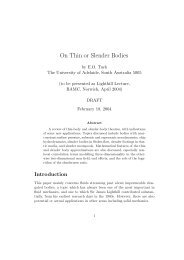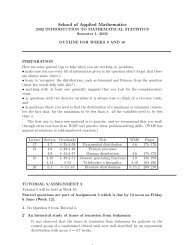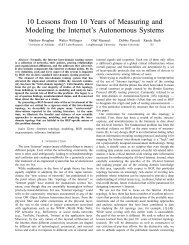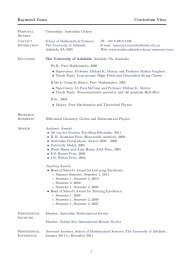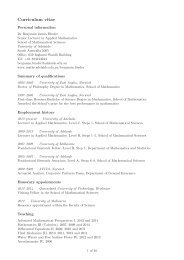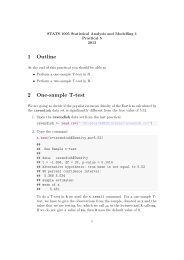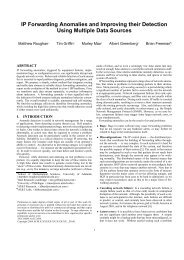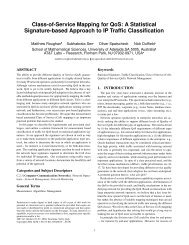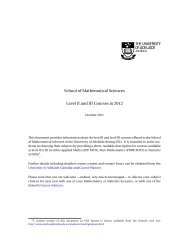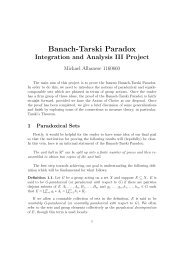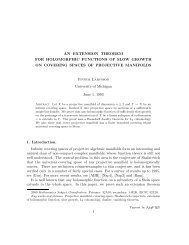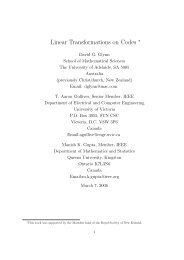PDF of Lecture Notes - School of Mathematical Sciences
PDF of Lecture Notes - School of Mathematical Sciences
PDF of Lecture Notes - School of Mathematical Sciences
You also want an ePaper? Increase the reach of your titles
YUMPU automatically turns print PDFs into web optimized ePapers that Google loves.
2. STATISTICAL INFERENCE<br />
Remark<br />
If x 1 , x 2 , . . . , x n are independent, the log likelihood function can be written as:<br />
l(θ; x) =<br />
n∑<br />
log f i (x i ; θ).<br />
i=1<br />
If x 1 , x 2 , . . . , x n are i.i.d., we have:<br />
l(θ; x) =<br />
n∑<br />
log f(x i ; θ).<br />
i=1<br />
Definition. 2.2.2<br />
Consider a statistical problem with log-likelihood l(θ; x). The score is defined by:<br />
and the Fisher information is<br />
U(θ; x) = ∂l<br />
∂θ<br />
I(θ) = E<br />
( )<br />
− ∂2 l<br />
.<br />
∂θ 2<br />
Remark<br />
For a single observation with <strong>PDF</strong> f(x, θ), the information is<br />
)<br />
i(θ) = E<br />
(− ∂2<br />
∂θ log f(X, θ) .<br />
2<br />
In the case <strong>of</strong> x 1 , x 2 , . . . , x n i.i.d. , we have<br />
Theorem. 2.2.1<br />
Under suitable regularity conditions,<br />
I(θ) = ni(θ).<br />
E{U(θ; X)} = 0<br />
and Var{U(θ; X)} = I(θ).<br />
82





